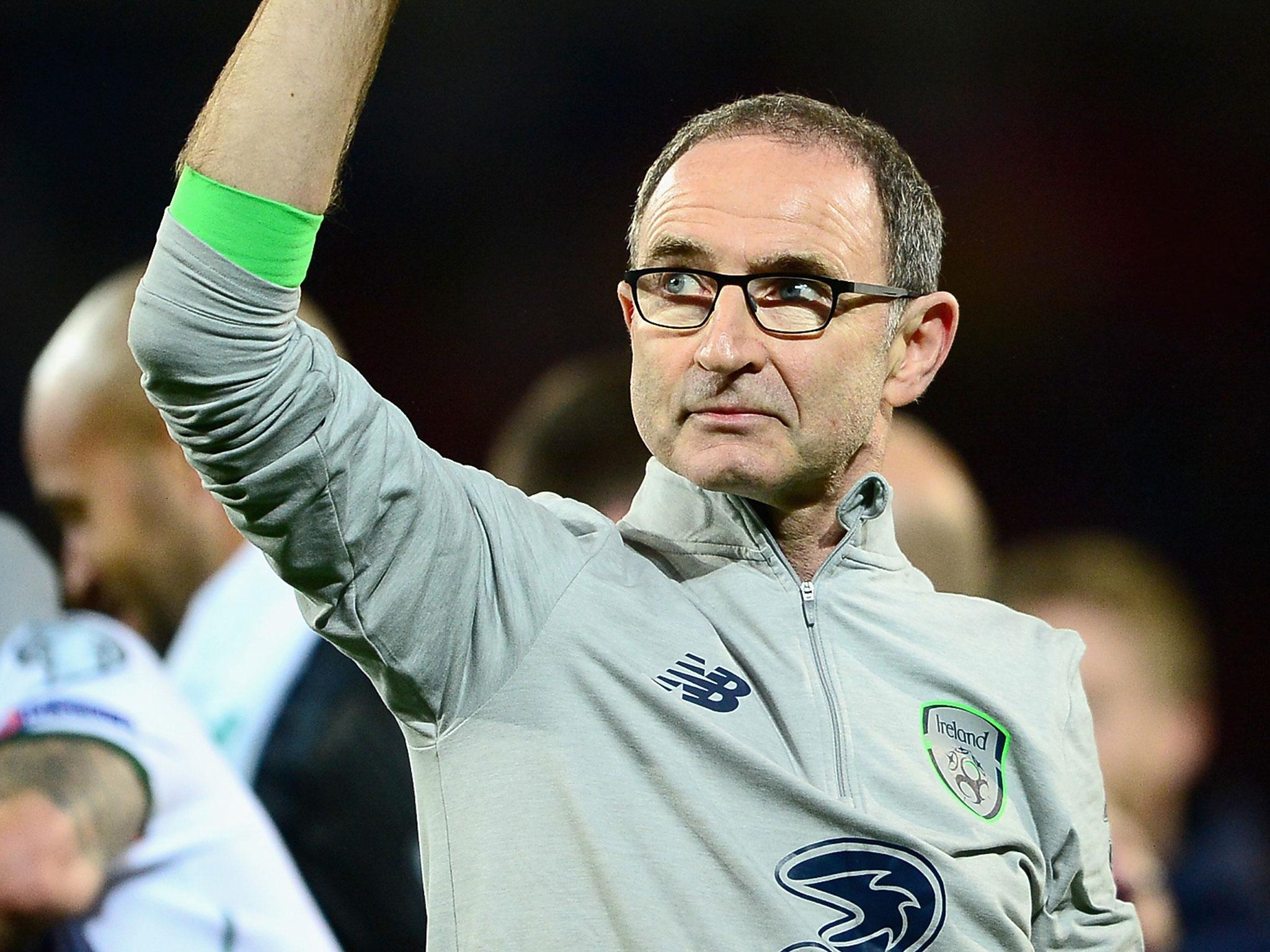Managing without managing: How Martin O'Neill turned Republic of Ireland into the ultimate big game players
History is written by the winners and O’Neill knows that as well as anyone with his side now just two crunch games away from Russia

Your support helps us to tell the story
From reproductive rights to climate change to Big Tech, The Independent is on the ground when the story is developing. Whether it's investigating the financials of Elon Musk's pro-Trump PAC or producing our latest documentary, 'The A Word', which shines a light on the American women fighting for reproductive rights, we know how important it is to parse out the facts from the messaging.
At such a critical moment in US history, we need reporters on the ground. Your donation allows us to keep sending journalists to speak to both sides of the story.
The Independent is trusted by Americans across the entire political spectrum. And unlike many other quality news outlets, we choose not to lock Americans out of our reporting and analysis with paywalls. We believe quality journalism should be available to everyone, paid for by those who can afford it.
Your support makes all the difference.History is written by the winners. Martin O’Neill knows that as well as anyone. There was nothing inevitable about Ireland’s 1-0 victory in Cardiff that secured them a shot at their first World Cup in 16 years. Say Joe Allen staggers back onto the pitch. Say James McClean slices his shot wide. Say Darren Randolph doesn’t quite get to Hal Robson-Kanu’s header. Suddenly Chris Coleman is the footballing genius, and O’Neill the muesli-headed moron.
Yet sometimes, looking at the bigger picture obscures the bigger picture. Ireland’s competitive record in 2017 looks uninspiring on paper: two wins from six games. But they were the last two, the two that mattered. Two more, and Ireland will be rubbing shoulders with the world’s best in Russia. And consistently, Ireland have come away from crunch games - Germany home and away, Bosnia home and away, Italy in Lille and now Wales in Cardiff - clutching the spoils. It has happened too often to be coincidental. So how has O’Neill done it?
Craig Bellamy said something interesting on Sky Sports after the game. Bellamy worked with O’Neill at Celtic, and the picture he painted of O’Neill’s management style could scarcely be further removed from the maniacal, detail-soaked borderline-obsessive of the popular imagination.
“You won’t even see him,” Bellamy said. “There are times he turns up on a Friday. There were times I couldn’t tell you what formation we were playing on a Saturday. You’d just read the list, and basically I had to look at someone else and ask: what formation are we playing?
“There was no information whatsoever. But he knew his players. You knew where you stood with him and if you played well for him, the confidence he'd give you and the way he'd make you feel, you just want to run even more for him.”
Last year I spent a little time with the Iceland manager Heimir Hallgrimsson, who has just achieved World Cup qualification for the first time in the country’s history. Hallgrimsson’s take on international management was that by and large, it is about creating the right environment. The fine details, the meticulous preparation, the tactical and technical minutiae: all this happens weeks in advance. “By the time the players arrive,” Hallgrimsson said, “most of your work is done.”
Likewise, O’Neill does not overload his players with instruction. So compact is the international window that there is barely the time to do so, at any rate. Instead, he concentrates on a few simple messages aimed at generating the right emotional tenor. “I always feel it’s better to let your words come naturally, and from within,” he said last year. “If you start preparing too much, I think there’s a real danger of it coming across as contrived.”

In the Cardiff mixed zone, we probed in vain for some sort of insight into O’Neill’s tactical masterclass. Instead, we got the same vaguely uplifting platitudes. “We mightn’t be the best team in the world,” said Daryl Murphy. “We might not have the best players. But you know that whoever’s next to you will give everything for the cause, for the shirt. Any time we have a big game, we always produce. It just runs through everyone in the team.”
Perhaps the secret to O’Neill’s international management, then, is the lack of it. Ireland have not been afraid to play some downright ugly stuff at times. They scored fewer goals in qualification than Macedonia. But as Wales tried to finesse their way through in Cardiff last night, Ireland espoused the virtues of a simple plan, ruthlessly and hungrily executed. After the apathy and lethargy of the Trapattoni years, O’Neill has rebooted the emotional core of this Ireland side.
“Listen, you’re a professional footballer,” Murphy said. “The least you can do is run your heart out for 90 minutes. So if it’s one of them games where you're chasing shadows, chasing lost causes, you just need one chance. One chance can change everything.”
Ireland are not there yet, of course. Next week’s play-off draw in Zurich will pit them against one of the big fish of European football. Perhaps Italy, perhaps Portugal. Two enormous games lie ahead. But you suspect that for O’Neill and his Ireland side, that is exactly how they like it.
Join our commenting forum
Join thought-provoking conversations, follow other Independent readers and see their replies
Comments